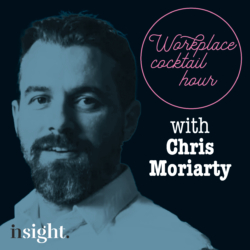To provide the best experiences, we use technologies like cookies to store and/or access device information. Consenting to these technologies will allow us to process data such as browsing behaviour or unique IDs on this site. Not consenting or withdrawing consent, may adversely affect certain features and functions.
The technical storage or access is strictly necessary for the legitimate purpose of enabling the use of a specific service explicitly requested by the subscriber or user, or for the sole purpose of carrying out the transmission of a communication over an electronic communications network.
The technical storage or access is necessary for the legitimate purpose of storing preferences that are not requested by the subscriber or user.
The technical storage or access that is used exclusively for statistical purposes.
The technical storage or access that is used exclusively for anonymous statistical purposes. Without a subpoena, voluntary compliance on the part of your Internet Service Provider, or additional records from a third party, information stored or retrieved for this purpose alone cannot usually be used to identify you.
The technical storage or access is required to create user profiles to send advertising, or to track the user on a website or across several websites for similar marketing purposes.
 Nearly two million workers in Great Britain reported suffering from work-related ill health in 2022/23, according the latest annual statistical report from the UK’s Health and Safety Executive. The statistics reveal that 1.8 million workers reported they were suffering from work-related ill health in 2022/23, with approximately half of the cases down to stress, depression or anxiety. In the recent years prior to the COVID-19 pandemic, the rate of self-reported work-related ill health had been broadly flat, but the current rate is higher than 2018/19. (more…)
Nearly two million workers in Great Britain reported suffering from work-related ill health in 2022/23, according the latest annual statistical report from the UK’s Health and Safety Executive. The statistics reveal that 1.8 million workers reported they were suffering from work-related ill health in 2022/23, with approximately half of the cases down to stress, depression or anxiety. In the recent years prior to the COVID-19 pandemic, the rate of self-reported work-related ill health had been broadly flat, but the current rate is higher than 2018/19. (more…)






 According to
According to 


 In the first of a new series of news-based podcasts, I catch up with Chris Moriarty, the co-founder of Audiem and much besides. Over a glass of gin and tonic, we discuss the AI Safety Summit and the proclamations of imminent doom that came before and after it. We also talk about the covid inquiry and the toxic workplace culture it exposed as an intriguing subplot.
In the first of a new series of news-based podcasts, I catch up with Chris Moriarty, the co-founder of Audiem and much besides. Over a glass of gin and tonic, we discuss the AI Safety Summit and the proclamations of imminent doom that came before and after it. We also talk about the covid inquiry and the toxic workplace culture it exposed as an intriguing subplot. 




 Generation Z and millennials make up a huge part of the workforce and are only continuing to grow, and with this increase, more is being asked from the workplaces that employ them. Workplace wellness is becoming increasingly essential, especially as employee well-being decreases and affects trust in employers’ efforts. With significant economic woes and work setup changes affecting professional life, 64 percent of the UK workforce would say their
Generation Z and millennials make up a huge part of the workforce and are only continuing to grow, and with this increase, more is being asked from the workplaces that employ them. Workplace wellness is becoming increasingly essential, especially as employee well-being decreases and affects trust in employers’ efforts. With significant economic woes and work setup changes affecting professional life, 64 percent of the UK workforce would say their 
















